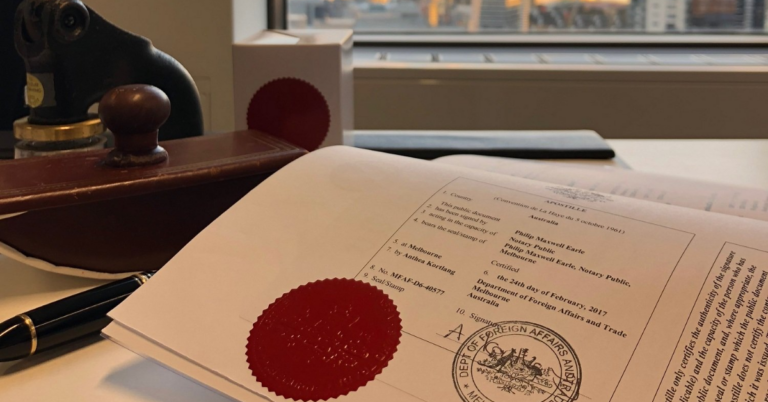Understanding the Role and Importance of a Process Server in Legal Proceedings
In the legal world, the smooth functioning of any case relies on the timely and correct delivery of essential documents to the individuals or entities involved. A Process Server plays a crucial role in this aspect of the legal process. These professionals are responsible for delivering legal documents such as subpoenas, summonses, complaints, and other court-related paperwork to the intended recipients. Without their services, it would be difficult to ensure that parties involved in a legal matter are properly notified, thus jeopardizing the fairness and legality of the proceedings. The following article delves into the responsibilities, types of documents served, and the significance of process servers in the legal system.
The Role and Duties of a Process Server
A process server is a neutral third-party professional who is tasked with delivering legal documents to individuals or organizations involved in a legal dispute. The primary duty of a process server is to ensure that the recipient of the documents receives them in a timely and legal manner. This delivery is known as the “service of process,” a fundamental part of the judicial system that ensures due process rights are maintained.
Beyond just delivering legal documents, process servers must also provide proof of service. After the documents are delivered, the process server prepares a proof of service or affidavit, a legal document that verifies the date and manner in which the legal documents were served. This is important because it acts as evidence that the recipient was properly notified of the legal action and helps avoid disputes later on regarding whether the documents were received.
Types of Documents Served by a Process Server
The types of documents served by a process server vary widely depending on the legal matter at hand. Here are some of the most common legal documents that process servers deliver:
Summons and Complaints
A summons and complaint are typically the first documents involved in a lawsuit. A summons is a legal document that informs a defendant that a lawsuit has been filed against them and that they are required to respond. The complaint outlines the details of the case, including the plaintiff’s allegations and the relief they are seeking from the court. The process server’s role is to deliver these documents in a timely manner to ensure the defendant is aware of the lawsuit and their obligation to respond.
Subpoenas
A subpoena is a legal document that compels an individual or entity to provide evidence, documents, or testimony in a legal matter. Subpoenas may be issued by the court or attorneys involved in a case. A process server is responsible for delivering the subpoena to the individual or organization named in the document. Failure to comply with a subpoena can result in legal penalties, making it vital for process servers to ensure that these documents are delivered accurately and on time.
Eviction Notices
Eviction notices are documents used to inform tenants that they must vacate a rental property due to non-payment of rent, lease violations, or other reasons. Process servers ensure that eviction notices are properly delivered, which is a legal requirement before a landlord can begin formal eviction proceedings. Eviction notices must be served in accordance with local laws to ensure that they are legally valid and that the tenant is given proper notice.
Writs of Execution and Other Orders
Writs of execution are orders issued by a court that instructs a sheriff or another law enforcement officer to enforce a judgment. This might involve seizing property or garnishing wages to satisfy a debt. A process server may be tasked with delivering a writ of execution or other orders related to court decisions. The proper service of these documents is essential for ensuring that the court’s orders are enforced in accordance with the law.
Why Process Servers Are Essential to Legal Procedures
Ensuring Legal Compliance
One of the most significant reasons for hiring a professional process server is their expertise in ensuring legal compliance. Service of process is governed by specific laws and regulations, which vary by jurisdiction. A professional process server is well-versed in these laws and understands how to navigate the requirements for serving legal documents in a way that ensures compliance. Incorrectly serving documents can delay legal proceedings and result in penalties or dismissal of the case.
In addition to delivering documents correctly, process servers must also ensure that service is completed within the time frame specified by law. Many legal documents must be served within strict time limits, and failure to meet these deadlines can negatively impact the case. Process servers understand the importance of adhering to these time constraints and are skilled at ensuring the timely delivery of documents.
Maintaining Fairness in Legal Proceedings
The role of a process server is crucial in maintaining fairness in legal proceedings. Legal proceedings can only move forward if all parties involved have been properly notified. If a defendant or witness is not informed of legal actions against them, they will not have the opportunity to respond or prepare a defense. This undermines the principles of justice and fairness that the legal system is built upon. By serving legal documents properly, process servers ensure that all parties involved have equal access to justice.
Professional and Neutral Service
A process server is required to be a neutral party, meaning they cannot have a vested interest in the outcome of the case. This impartiality is important because it ensures that the service of process is conducted without bias or interference. Process servers are trained to act professionally and ensure that the legal documents are delivered with respect, regardless of the nature of the case or the individuals involved.
Proof of Service
In many cases, the proof of service is just as important as the service itself. Without proof that the documents were delivered, there is no way for the court to verify that the recipient was properly notified. A professional process server provides proof of service in the form of an affidavit or certificate, which is then submitted to the court as evidence. This document is critical for advancing the legal case and ensuring that all procedural requirements are met.
Challenges Faced by Process Servers
While the role of a process server is essential, it does come with its share of challenges. One of the most significant challenges is locating the recipient of the documents. In some cases, individuals may go out of their way to avoid being served, using tactics such as moving residences or refusing to answer the door. Process servers are trained to handle these situations and often use creative methods to ensure successful service.
Another challenge is dealing with individuals who are uncooperative or even hostile during the service of process. While process servers are prohibited from using force or intimidation, they must still find ways to ensure the documents are delivered in accordance with the law. This may involve multiple attempts at service or coordinating with local law enforcement in more complicated cases.
The Benefits of Hiring a Professional Process Server
Hiring a professional process server offers several benefits, including:
-
Expertise and Knowledge: Professional process servers are familiar with the rules and regulations governing the service of process. They know how to handle different types of documents and how to deal with difficult situations.
-
Efficiency: Process servers are skilled at quickly locating and serving individuals, reducing delays in legal proceedings.
-
Avoiding Legal Complications: When legal documents are served improperly, it can lead to delays, penalties, or even the dismissal of a case. A professional process server ensures that documents are delivered correctly and in accordance with the law.
-
Peace of Mind: Knowing that a trained and experienced professional is handling the service of process allows attorneys and clients to focus on other aspects of the case, with confidence that the paperwork will be delivered on time and properly.
Conclusion
The role of a process server is indispensable in the legal world. From ensuring that legal documents are served on time and in accordance with the law to maintaining fairness in legal proceedings, process servers perform essential tasks that contribute to the proper functioning of the justice system. By hiring a professional process server, individuals and organizations can ensure that their legal cases proceed smoothly and that they comply with all necessary legal requirements.







